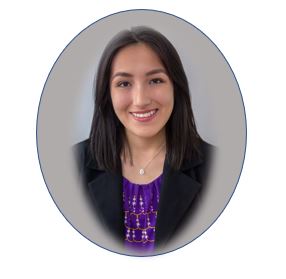As the new academic year begins for the approximately 130,930 K-12 schools across the U.S. and the debate about reopening schools continues to grow at the local and national level, some key voices are missing from the conversation. While school districts decide to remain online, adopt hybrid options, or embrace full in-person classes, the main voices being heard at school board meetings, the media, and in the policymaking arena are parents, students, teachers, school administrators, and policymakers. Yet, there is one group, the school custodians or janitors, who almost never come up as part of the conversation. Their needs, worries, and opinions are not being heard or considered in the school reopening debate.
Whether schools reopen or not, the decision will severely impact custodians’ lives, their health, and their livelihoods. If schools don’t reopen, the future for custodians becomes grim. Unlike teachers and other school staff, custodians cannot perform their duties from home, so what would happen to them? It’s unclear, yet unlikely, that school districts would continue to pay their custodial staff indefinitely until schools reopen again. School districts might opt to give custodians unpaid leaves until schools reopen or might end up reducing the size of the custodial staff through layoffs. Among the many custodians who have already faced layoffs, earlier this August the East Chicago school board laid off 90 employees including 23 janitors until schools reopen for in-person instruction. In scenarios like these, people would lose their sources of income at a time when new jobs are scarce, when households are already experiencing financial hardship, and when economic relief options like unemployment benefits aren’t enough.
The schools that are reopening in some capacity are touting new cleaning protocols that will help minimize the spread of Coronavirus in schools, yet they rarely mention the very people who will be implementing these protocols. Custodians, like teachers, are the essential workers who will be on the frontlines working and risking their health to support students and staff, but just the nature of custodial job duties increases the risk of infection for these individuals. Custodians are the key personnel that will use the disinfecting chemicals to wipe, spray, and mop hallways, bathrooms, and classrooms to ensure that surfaces are Coronavirus free. They will deal with bodily fluids, take out the trash, and do additional work to make sure that the school environment is clean and ready for use. Yet, unlike teachers, there are still many custodians who don’t have unions to advocate for them and their safety on the job. Furthermore, many custodians are non-English speakers, which presents one more obstacle that often prevents these individuals from advocating for themselves.
For reopening schools, policies and decisions should reflect the essential work that custodians perform. Therefore, as school districts consider their budgets to increase sanitation measures and reduce the risk of Coronavirus spread, they should also guarantee hazard pay for the custodial staff. Custodians are typically already on the lower end of the pay scale, so hazard pay should increase their salaries to really reflect the additional work they will perform to combat Coronavirus in schools, and the additional risk of exposure they will face due to the nature of the job as frontline workers. Quality personal protective equipment including adequate masks, face shields, and gloves should be readily available in sufficient quantities. The design of Coronavirus school cleaning protocols should consider the custodians responsible for implementing them. Coronavirus school procedures and policies should be intentional about protecting custodians and not creating additional unnecessary risks or even further unsafe work conditions.
Custodians are proud of their work, and many have dedicated years to serving schools and contributing to the educational environment. Still, the reality in many cases is that custodians don’t have a voice at the table and are at the mercy of their supervisors and school districts. That simply cannot continue to be the case. As the debate about school reopening continues, the voices of the custodial staff need to be elevated and openly included in the decision-making process. School district leadership, school boards, and school principals should engage custodial staff directly and incorporate their perspectives in the policies they develop. School districts and supervisors should be attentive and responsive to the needs of custodians as the school year starts in uncertain circumstances. Whether schools reopen or not, the decision will impact custodians, and school districts need to be accountable and responsible for these employees who have always been at the foundation of school operations.

Edited by: Andrea Alvarez Marin
Photo by: who?du!nelson
